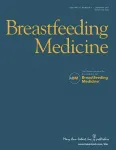Why portraying humans as healthy machines can backfire
News from the Journal of Marketing
2021-02-11
(Press-News.org) Researchers from University of Amsterdam and Stanford University published a new paper in the Journal of Marketing that examines explores how human-as-machine representations affect consumers--specifically their eating behavior and health.
The study, forthcoming in the Journal of Marketing, is titled "Portraying Humans as Machines to Promote Health: Unintended Risks, Mechanisms, and Solutions" and is authored by Andrea Weihrauch and Szu-Chi Huang.
To combat obesity, governments, marketers, and consumer welfare organizations often encourage consumers to make food choices more rationally. One strategy used is to leverage human-as-machine representations--portraying humans as machines. This approach tries to leverage people's existing associations about machines--that machines make decisions rationally--to help them approach food in a machine-like manner, with the goal of encouraging healthier choices.
For example, National Geographic's series "The Incredible Human Machine" describes unhealthy behaviors as (human) "errors" in the maintenance of our bodily machine; Centrum asks consumers to "power the human machine" with healthy food supplements; and the international event Men's Health Week compares the human body to a car and states that unhealthy food and beverage choices (i.e., alcohol) hurt your "engine." In addition, consumers experience human-as-machine representations in everyday life: virtual telepresence systems show people as human faces with mechanistic bodies, human enhancement technologies (e.g., augmented reality goggles) represent humans as more machine-like, and artificial intelligence (AI) software further blurs the line between humans and machines.
When consumers see humans portrayed as machines, they feel that they are expected to behave like machines and choose food like machines would--in a rational and calculating manner. This style of choice making is in line with the hopes of policy makers and can lead to desired effects (healthier choices) for some consumers. However, this expectation backfires for a very vulnerable segment of consumers--consumers who have low confidence in their ability to choose healthy food. For them, human-as-machine representations actually lead them to choose unhealthier options.
Why does this occur? Weihrauch explains that "For this consumer segment, the expectation that one should be rational and machine-like when it comes to food feels impossible. Instead of feeling motivated to be more rational, the feeling of not being able to perform like a machine triggers unhealthier choice making instead. Thus, a strategy used with good intentions to educate consumers and improve their health can have an unintended dark side that hurts the very segment that consumer welfare organizations want to help."
There is hope, though. Research provides a practical solution to help circumvent this backfire effect: accompany the human-as-machine visuals with a message to reassure consumers that making machine-like food choices is doable. By adding this message in a cafeteria, the study found that consumers' choice of healthy food increased by 22% for some.
These results ring a cautionary bell for nonprofit organizations, policy makers, educators, and for-profit health marketers: the use of human-as-machine imagery can be more complicated than intended because confronting consumers with expectations to be "machine-like" can be risky if not aligned with their abilities. Understanding the potential processes that cause indulgent food choices is also crucial for consumers, especially as human-as-machine stimuli become more prevalent in the lives of consumers around the world.
INFORMATION:
Full article and author contact information available at: https://doi.org/10.1177/0022242920974986
About the Journal of Marketing
The Journal of Marketing develops and disseminates knowledge about real-world marketing questions useful to scholars, educators, managers, policy makers, consumers, and other societal stakeholders around the world. Published by the American Marketing Association since its founding in 1936, JM has played a significant role in shaping the content and boundaries of the marketing discipline. Christine Moorman (T. Austin Finch, Sr. Professor of Business Administration at the Fuqua School of Business, Duke University) serves as the current Editor in Chief.
https://www.ama.org/jm
About the American Marketing Association (AMA)
As the largest chapter-based marketing association in the world, the AMA is trusted by marketing and sales professionals to help them discover what is coming next in the industry. The AMA has a community of local chapters in more than 70 cities and 350 college campuses throughout North America. The AMA is home to award-winning content, PCM® professional certification, premiere academic journals, and industry-leading training events and conferences.
https://www.ama.org
ELSE PRESS RELEASES FROM THIS DATE:
2021-02-11
Obesity and excess body fat may have contributed to more deaths in England and Scotland than smoking since 2014, according to research published in the open access journal BMC Public Health.
Between 2003 and 2017 the percentage of deaths attributable to smoking are calculated to have decreased from 23.1% to 19.4% while deaths attributable to obesity and excess body fat are calculated to have increased from 17.9% to 23.1%. The authors estimate that deaths attributable to obesity and excess body fat overtook those attributable to smoking in 2014.
Jill Pell, at the University of Glasgow, United Kingdom, the corresponding author said: "For several decades smoking has been a major target of public ...
2021-02-11
The needs of millions of overlooked, 'left behind' adolescent women must become a more significant priority within international efforts to end poverty by 2030, a UK Government-commissioned report is urging.
The University of Cambridge report, which was commissioned by the Foreign, Commonwealth and Development Office, argues that there is an urgent need to do more to support marginalised, adolescent women in low and middle-income countries; many of whom leave education early and then face an ongoing struggle to build secure livelihoods.
Amid extensive evidence which highlights the difficulties these women face, it estimates that almost a third of adolescent ...
2021-02-11
One third (35%) of people who took a new drug for treating obesity lost more than one-fifth (greater than or equal to 20%) of their total body weight, according to a major global study involving UCL researchers.
The findings from the large-scale international trial, published today in the New England Journal for Medicine, are being hailed as a "gamechanger" for improving the health of people with obesity and could play a major part in helping the UK to reduce the impact of diseases, such as COVID-19.
The drug, semaglutide, works by hijacking the body's own appetite regulating system in the brain leading to reduced hunger and calorie intake.
Rachel Batterham, Professor of Obesity, Diabetes and Endocrinology ...
2021-02-11
MUSC Hollings Cancer Center researchers found that a single strain of bacteria may be able to reduce the severity of graft-versus-host disease (GVHD), as reported online in February 2021 in JCI Insight.
Bone marrow transplant can be a lifesaving procedure for patients with blood cancers. However, GVHD is a potentially fatal side effect of transplantation, and it has limited treatment options. This proof-of-concept study demonstrates that better treatment options may be on the horizon for patients with GVHD.
Xue-Zhong Yu, M.D., associate director of Basic Science at Hollings Cancer Center, and lead ...
2021-02-10
Researchers at the University of Maryland School of Medicine (UMSOM) and their colleagues published a new analysis today in the journal Nature from genetic sequencing data of more than 53,000 individuals, primarily from minority populations. The early analysis, part of a large-scale program funded by the National Heart, Lung, and Blood Institute, examines one of the largest and most diverse data sets of high-quality whole genome sequencing, which makes up a person's DNA. It provides new genetic insights into heart, lung, blood and sleep disorders and how these conditions impact people with diverse racial and ...
2021-02-10
A team, including an astronomer from the University of Hawai?i Institute for Astronomy (IfA), have confirmed a planetoid that is almost four times farther from the Sun than Pluto, making it the most distant object ever observed in our solar system. The planetoid, nicknamed "Farfarout," was first detected in 2018, and the team has now collected enough observations to pin down the orbit. The Minor Planet Center has now given it the official designation of 2018 AG37.
Farfarout's name distinguished it from the previous record holder "Farout," found by the same team of astronomers in 2018. The team includes UH Mānoa's David Tholen, Scott S. Sheppard of ...
2021-02-10
The United States spends more than $200 billion every year in efforts to treat and manage mental health. The onset of the coronavirus pandemic has only deepened the chasm for those experiencing symptoms of depression or anxiety. This breach has also widened, affecting more people.
New research from Carnegie Mellon University, University of Pittsburgh and University of California, San Diego found that 61% of surveyed university students were at risk of clinical depression, a value twice the rate prior to the pandemic. This rise in depression came alongside dramatic shifts in lifestyle habits.
The study documents dramatic changes in physical activity, sleep and time use at the onset ...
2021-02-10
UNIVERSITY PARK, Pa. -- The descriptions on the fronts of infant and toddler food packages may not accurately reflect the actual ingredient amounts, according to new research. The team found that vegetables in the U.S. Department of Agriculture's "dark green" category were very likely to appear in the product name, but their average order in the ingredient list was close to fourth. In contrast, juice and juice concentrates that came earlier on the ingredient list were less likely to appear in product names.
"Early experiences with food can mold children's preferences and contribute to building healthful, or unhealthful, eating habits that last a lifetime," said author Alyssa Bakke, staff sensory scientist, Penn State. "Our previous work found combining ...
2021-02-10
New Rochelle, NY, February 10, 2021--It may be safe for COVID-infected mothers to maintain contact with their babies. Keeping them apart can cause maternal distress and have a negative effect on exclusive breastfeeding later in infancy, according to The COVID Mothers Study published in the peer-reviewed journal Breastfeeding Medicine. Click here to read the article now.
In this worldwide study, infants who did not directly breastfeed, experience skin-to-skin care, or who did not room-in within arms' reach of their mothers were less likely to be exclusively breastfed in the first 3 months of life. Nearly 60% of ...
2021-02-10
Oil and water may not mix, but adding the right nanoparticles to the recipe can convert these two immiscible fluids into an exotic gel with uses ranging from batteries to water filters to tint-changing smart windows. A new approach to creating this unusual class of soft materials could carry them out of the laboratory and into the marketplace.
Scientists at the National Institute of Standards and Technology (NIST) and the University of Delaware have found what appears to be a better way to create these gels, which have been an area of intense research focus for more than a decade. ...
LAST 30 PRESS RELEASES:
[Press-News.org] Why portraying humans as healthy machines can backfire
News from the Journal of Marketing



